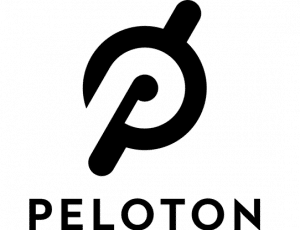How $PTON has developed a cult-following brand and why it should matter for investors:
The idea was a simple: "Why shouldn’t top-level spin classes (and strength and stretch and yoga classes) be available on demand?"
 https://abs.twimg.com/emoji/v2/... draggable="false" alt="⏬" title="Nach unten zeigendes doppeltes Dreieck" aria-label="Emoji: Nach unten zeigendes doppeltes Dreieck">
https://abs.twimg.com/emoji/v2/... draggable="false" alt="⏬" title="Nach unten zeigendes doppeltes Dreieck" aria-label="Emoji: Nach unten zeigendes doppeltes Dreieck"> https://abs.twimg.com/emoji/v2/... draggable="false" alt="⏬" title="Nach unten zeigendes doppeltes Dreieck" aria-label="Emoji: Nach unten zeigendes doppeltes Dreieck">
https://abs.twimg.com/emoji/v2/... draggable="false" alt="⏬" title="Nach unten zeigendes doppeltes Dreieck" aria-label="Emoji: Nach unten zeigendes doppeltes Dreieck">
The idea was a simple: "Why shouldn’t top-level spin classes (and strength and stretch and yoga classes) be available on demand?"
Showing up in-person (5:30 am on a Monday) to workout with a group of people is part of what makes the experience so addictive. Becoming part of the tribe demands sacrifices — of sleep, of time, of money — which only increases the attachment.
And then there’s $PTON. Founded in 2012 by John Foley, the company has rocketed to success by taking these cult-like elements and sanding them down into a more convenient exercise experience.
But $PTON is much more than a simple, convenient product:
But $PTON is much more than a simple, convenient product:
Peloton gives riders something they were not expecting: Competition - You’re constantly competing against each other and your own records.
On Peloton, each rider has a user name and statistics about the ride. This is what we can call “gamification”.
On Peloton, each rider has a user name and statistics about the ride. This is what we can call “gamification”.
And then there’s the branding of Peloton. There’s always been something a little bit dark about home exercise. Peloton’s whole plan was to counter that perception, to position home exercise as a luxury as opposed to a compromise.
“The perception that people have with Peloton, is the perception that people have with Apple.” said a brand community consultant. “Apple is a luxury product.” People seek it out for the luster and services tied to it.
“They nailed the customer experience perfectly, which is why they’ve made this cult-like following.”
This is Peloton’s growth strategy as well, and a way for it potentially to be able to stay ahead of the cheaper competition
This is Peloton’s growth strategy as well, and a way for it potentially to be able to stay ahead of the cheaper competition
But the word cult can have a bad connotation. "That doesn’t feel like Peloton. What makes it so incredible is the sense of community and the way members support each other." SVP of brand marketing notes. No one can truly grasp Peloton or its "community" until they are part of it"
"Our members sell more bikes than we do"  https://abs.twimg.com/emoji/v2/... draggable="false" alt="✅" title="Fettes weißes Häkchen" aria-label="Emoji: Fettes weißes Häkchen">
https://abs.twimg.com/emoji/v2/... draggable="false" alt="✅" title="Fettes weißes Häkchen" aria-label="Emoji: Fettes weißes Häkchen">
So yes, combining convenience, community and luxury together is a big step for having success as a brand and as business. $PTON achieved in a couple of years what many brands can’t for their whole existence.
So yes, combining convenience, community and luxury together is a big step for having success as a brand and as business. $PTON achieved in a couple of years what many brands can’t for their whole existence.
A lot of people will argue that selling 2k indoor bikes isn’t sustainable for long term and the only reason $PTON is having success is due to the pandemic and short term hype. Let me disagree for a couple of reasons:
First, there will always be a big market for people who are willing to pay a premium for products that go beyond their functionality. Look at brands like $NKE, $APPL, $TSLA or even $SBUX.
Second, $PTON already did the most difficult part, building a strong community brand.
Second, $PTON already did the most difficult part, building a strong community brand.
With a Net Promoter Score of 86, brand recognition and likability are through the roof.
That, will give them a world of possibilities regarding product and services innovation:
That, will give them a world of possibilities regarding product and services innovation:
Wearables, apparel, fitness equipment, health monitoring, sports nutrition can all be part of their business and their subscription business model in the future, giving them a lot of options and pricing power. Once again, look at $APPL
3rd, $PTON is also building a platform business model with strong network effects. The company attracts some of the best fitness instructors in the industry. With more subscribers joining, top fitness instructors move toward Peloton. As they grow, it becomes more valuable for all

 Read on Twitter
Read on Twitter https://abs.twimg.com/emoji/v2/... draggable="false" alt="⏬" title="Nach unten zeigendes doppeltes Dreieck" aria-label="Emoji: Nach unten zeigendes doppeltes Dreieck">" title="How $PTON has developed a cult-following brand and why it should matter for investors: The idea was a simple: "Why shouldn’t top-level spin classes (and strength and stretch and yoga classes) be available on demand?"https://abs.twimg.com/emoji/v2/... draggable="false" alt="⏬" title="Nach unten zeigendes doppeltes Dreieck" aria-label="Emoji: Nach unten zeigendes doppeltes Dreieck">https://abs.twimg.com/emoji/v2/... draggable="false" alt="⏬" title="Nach unten zeigendes doppeltes Dreieck" aria-label="Emoji: Nach unten zeigendes doppeltes Dreieck">" class="img-responsive" style="max-width:100%;"/>
https://abs.twimg.com/emoji/v2/... draggable="false" alt="⏬" title="Nach unten zeigendes doppeltes Dreieck" aria-label="Emoji: Nach unten zeigendes doppeltes Dreieck">" title="How $PTON has developed a cult-following brand and why it should matter for investors: The idea was a simple: "Why shouldn’t top-level spin classes (and strength and stretch and yoga classes) be available on demand?"https://abs.twimg.com/emoji/v2/... draggable="false" alt="⏬" title="Nach unten zeigendes doppeltes Dreieck" aria-label="Emoji: Nach unten zeigendes doppeltes Dreieck">https://abs.twimg.com/emoji/v2/... draggable="false" alt="⏬" title="Nach unten zeigendes doppeltes Dreieck" aria-label="Emoji: Nach unten zeigendes doppeltes Dreieck">" class="img-responsive" style="max-width:100%;"/>



 So yes, combining convenience, community and luxury together is a big step for having success as a brand and as business. $PTON achieved in a couple of years what many brands can’t for their whole existence." title=""Our members sell more bikes than we do" https://abs.twimg.com/emoji/v2/... draggable="false" alt="✅" title="Fettes weißes Häkchen" aria-label="Emoji: Fettes weißes Häkchen">So yes, combining convenience, community and luxury together is a big step for having success as a brand and as business. $PTON achieved in a couple of years what many brands can’t for their whole existence." class="img-responsive" style="max-width:100%;"/>
So yes, combining convenience, community and luxury together is a big step for having success as a brand and as business. $PTON achieved in a couple of years what many brands can’t for their whole existence." title=""Our members sell more bikes than we do" https://abs.twimg.com/emoji/v2/... draggable="false" alt="✅" title="Fettes weißes Häkchen" aria-label="Emoji: Fettes weißes Häkchen">So yes, combining convenience, community and luxury together is a big step for having success as a brand and as business. $PTON achieved in a couple of years what many brands can’t for their whole existence." class="img-responsive" style="max-width:100%;"/>




